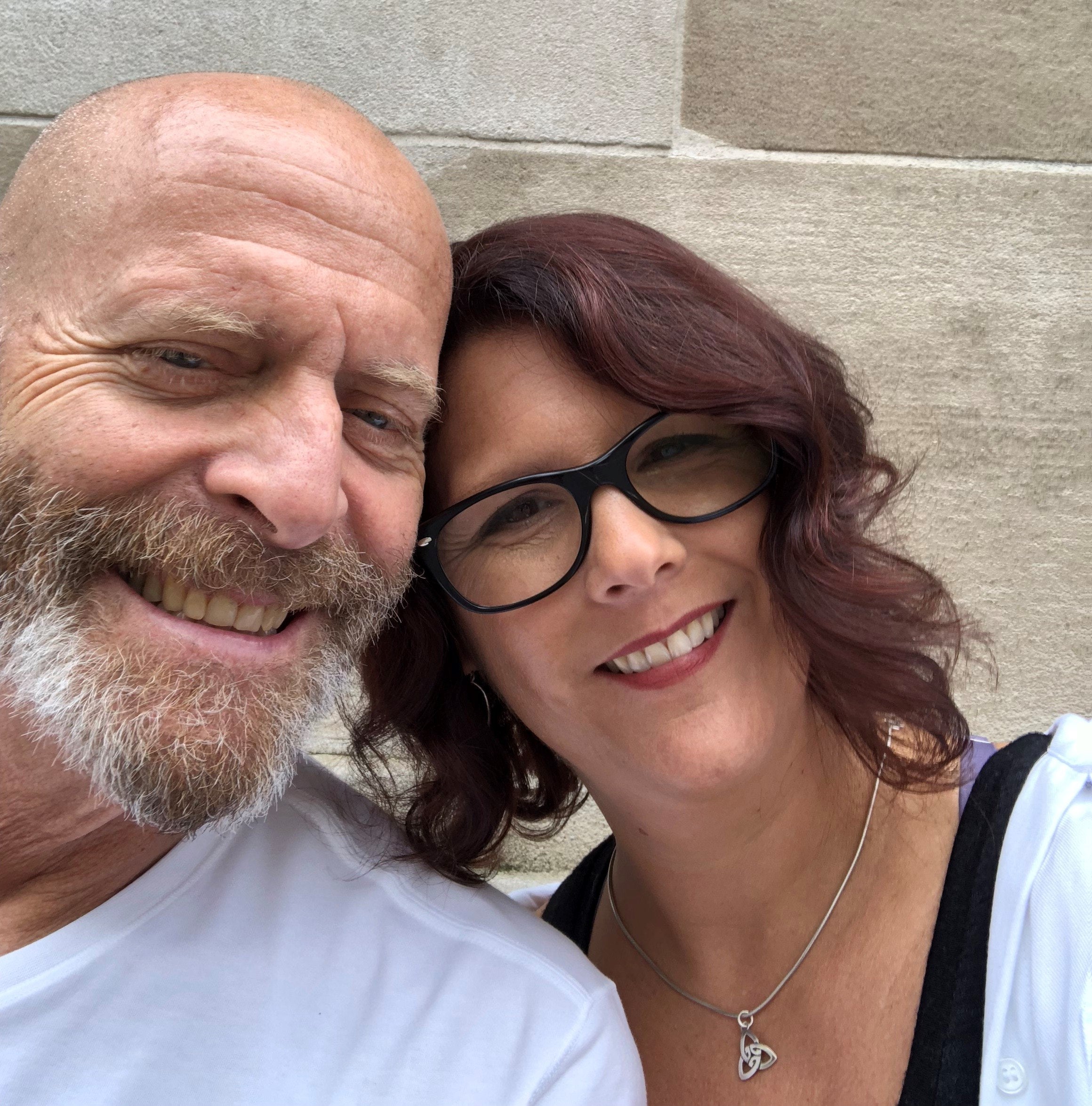Matthew Robinson was unsuspecting and shocked when he learned that the months of headaches he had been experiencing were likely due to cancer, and not just long work hours.
The 58-year-old triathlete was diagnosed in July 2017 with squamous cell carcinoma, after a PET scan showed a tumor at the base of his tongue.
Even more surprising, Matthew said, was learning that his cancer was probably caused by human papillomavirus, or HPV.
While tobacco and alcohol are two of the most common risk factors of cancers in the back of the throat, the Centers for Disease Control and Prevention (CDC) says recent studies show that about 60% to 70% of cancers of the oropharynx may be linked to HPV.
HPV is a common virus. Nearly 80 million people – about one in four – are currently infected in the U.S. About 14 million people, including teens, become infected with HPV each year. Most people with HPV never develop symptoms or health problems. But sometimes, HPV can cause certain cancers and other diseases.
In Matthew’s case, Dr. Jan Akervall, ENT – head and neck surgeon at St. Joseph Mercy Ann Arbor, felt this link made the cancer more treatable. He gave Matthew and his wife, Heather, confidence that they could successfully fight the disease.
“I knew that I was in the best hands possible,” Matthew said.
“As scary as it was, I knew I was going to beat it,” he added.
Dr. Akervall wanted to treat the cancer aggressively, and referred him to radiation oncologist Dr. Marie-Adele Kress. Matthew received seven weeks of radiation therapy – five days a week – and weekly chemotherapy simultaneously.
Determined to face the cancer head-on, Matthew rode his bike to and from treatment, 25 miles total. It was empowering. But treatment soon took a toll. As the radiation damaged his throat and swallowing became difficult, Matthew lost his taste buds and a lot of weight. In a matter of weeks, he went from 240 to 180 pounds. He required a feeding tube and IV fluids at one point to combat dehydration. When the feeding tube site developed an infection, Matthew also became severely ill from the antibiotics.
Through it all, Matthew and Heather focused on the light at the end of the tunnel, knowing doctors were confident he could make a full recovery.
“We took it one day at a time, knowing that it wasn’t going to be instantaneous,” Heather said.
The cancer care team at St. Joe’s Ann Arbor became family.
“It’s not just the doctors,” Heather said. “It’s the support staff. From the receptionists on, they know you, and it’s just wonderful,” she added.
Today, a year after the end of treatment, Matthew is cancer free. He is on an 18-month recall with Dr. Akervall. He also needs to see Dr. Kress every five to six months.
There are, of course, changes to navigate. For example, Matthew cannot currently work his sales director job, because cancer treatment affected his ability to speak clearly. Fatigue and energy loss comes more easily than before. His taste buds are finally coming back.
The cancer also changed how Matthew and Heather decided to live the rest of their lives. They want to enjoy life as new grandparents, and travel the United States in their new camper. They want to be less focused on work and money, and more committed to family.
More than anything, Matthew said, he wants people to know there is hope amid cancer.
“You need to accept that your life is going to change,” he said, but he urges people to “fight. Believe.”
Matthew also hopes his story helps raise awareness about HPV-related cancer, and the importance of vaccination. Read the CDC’s guidelines about the HPV vaccine.
To learn more about St. Joe’s head and neck cancer care program, visit stjoeshealth.org/cancercare-head-and-neck.




